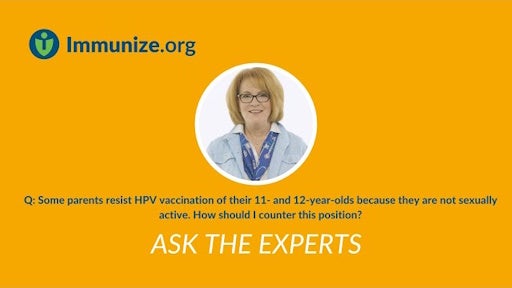Coverage levels for HPV vaccine are improving but are still inadequate. Results from CDC’s 2022 National Immunization Survey-Teen (NIS-Teen) indicate that for the first time since 2013, HPV vaccination initiation did not increase among adolescents age 13 through 17 years. HPV vaccination initiation actually fell among adolescents insured by Medicaid and remained lowest among the uninsured. The Vaccines for Children (VFC) program ensures access to HPV and other routine vaccines for adolescents who are uninsured or Medicaid-eligible at no cost. It is important that families are aware of this entitlement and the importance of HPV vaccination.
In 2022, 76% of adolescents had received at least 1 dose of HPV vaccine and 62.6% were up to date with HPV vaccination. A summary of the 2022 NIS-Teen survey and trends are available at www.cdc.gov/mmwr/volumes/72/wr/mm7234a3.htm.
Providers can improve uptake of this life-saving vaccine in several ways. First, studies show that missed opportunities are occurring. Some clinics address this by routinely starting the 2-dose vaccination series as early as possible, at age 9, giving them more chances to complete the series on time before age 13. A different strategy to improve uptake is by ‘bundling’ the recommendations for all adolescent vaccines at the first preteen visit. CDC recommends the following discussion starter: “Now that your child is 11, they need three vaccines to help protect against meningitis, HPV cancers, and whooping cough. We’ll give these shots during today’s visit. Do you have any questions about these vaccines?”
One of the main reasons parents give researchers for not vaccinating their adolescents is that the HPV vaccine was not recommended to them by their child’s healthcare provider. CDC urges healthcare providers to strongly and consistently recommend HPV vaccine, especially when patients are age 11 or 12 years. CDC’s “Talking to Parents about HPV Vaccine,” available at www.cdc.gov/hpv/media/pdfs/2024/07/talking_to_parents_HPV.pdf can help providers with these conversations.
For more detailed information about HPV vaccination strategies for providers, visit www.cdc.gov/hpv/hcp/boosting-vacc-rates.html and www.cdc.gov/vaccines/partners/routine-immunizations-lets-rise.html.
